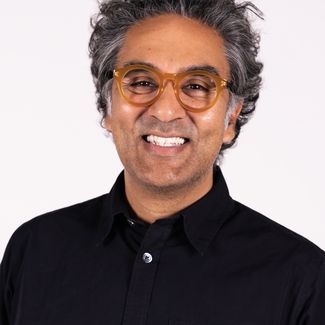
the future of planning
Never forget why the job was created in the first place
The global chief strategy officer of McCann recalls a valuable lesson he's never forgotten
10 October 2022
It was the early 90s. I was a planning intern. It was week one. My boss was the planning director. I had accompanied her to a meeting with “the madman”. It hadn’t gone well. He didn’t like the brief. He questioned the credibility of copy testing, he rebuked the rigidity of focus groups. He accused her of stifling him with data, with research.
She had walked out and had left me behind to pick up all the props and product samples.
“So, you’re a planner too? What the fuck do you think your job is?”
“Why don’t you tell me?”
I panicked silently as I realised how my response might have come across as a retort.
“Good answer” he snapped as he thumped the table so hard, I saw his hands leave a print on the table. He was restless, impatient, argumentative. Childlike and intimidating at once. An eternal optimist in a tearing hurry. The 50-year-old madman with the ponytail; revered and feared.
I loved what I learned that day. I have never forgotten it and I believe it is fundamental to the way we play our part in shaping the future of planning.
“Your job is to rationalise risk.”
“Your job is to remember why your job was created in the first place.”
He had been in London during the 70s when planning was just becoming a thing. A discipline born from the need to reinvent the way research was designed, directed and utilised. Planning came into existence to understand people as their whole selves. Everything that informs the human condition. Their hopes, fears, dreams, ambitions, triggers, insecurities, comforts, eccentricities. All of which are so gloriously interconnected.
Planning existed to make this understanding an irrefutable competitive advantage for the most courageous and creative minds.
It existed to put human needs at the heart of every creative and marketing response. To save our industry from measuring its worth from just being able to come up with ways to sell people stuff to captivating people in ways that compel them to buy.
Most importantly, it established effectiveness as the most credible currency of the value of our work.
The future of planning relies entirely on what made planning so powerful in the first place.
A lot has happened since the early 90s.
Radical, new distribution models, activist investors, acquisitive private equity firms and consumers with little brand loyalty and an even more volatile and competitive attention economy all fuelled and accelerated by an unprecedented proliferation of technology, data and channel complexity. A time of great disruption and ever-increasing demands from shareholders. Everything feels more do-or-die. Yes, that’s a lot.
This combination of challenges is forcing brands to meet high performance benchmarks even as so much of the alleged playbook for success has been rendered obsolete. Everything is ripe for questioning. Everything needs to be questioned again.
Planning has always been about getting to the heart of the issue. It is about being able to question relentlessly and fearlessly, to welcome the possibility of finding and recognising the brilliant in the seemingly obvious. To question, to question, to question. Creativity is an outcome of questioning and every creative idea is ultimately a courageous response to a problem that has been questioned repeatedly, thoughtfully and with unwavering tenacity.
The current business environment is a wonderful opportunity for planning to do what it does best– to ignite creativity.
Creativity that sets the foundation for growth, Creativity that generates and delivers value, Creativity that enables and supports bold, new customer experiences to drive engagement. With precision and at speed. Creativity that delivers measurable impact. Creativity that will shape the future.
The future of planning first and foremost rests on the courage to ask all the questions. Good questions, hard questions, challenging and fundamental questions.
Secondly, it rests on the curiosity to know more.
More about the business, more about the business model, more about how the money works, more about how clients make money, how they make decisions and how they think their consumers make decisions. People choose brands that are meaningful to their lives. As planners we must remain relentless in our pursuit to use every tool, technique or resource that allows us to balance intuition with rigour to always know more about how people live their lives. Knowing more is fundamental to being able to excite with possibility and reassure with certainty.
The discipline of planning was created to build the knowledge that would enable work that could challenge conventional wisdom and cliched assumptions of how communications worked, of how people allegedly felt, and lived and assumptions of how research worked. The future of planning rests on the determination to always be wanting to know more and the commitment to helping our clients know more.
It’s at the heart of what makes work irrefutably magical and captivating.
Finally, the future of planning rests on confidence. The confidence of knowing your worth.
In the case of planning knowing our worth is knowing how to claim and prove the value of the work we create. It’s what ultimately rationalises creative risk and it’s what planning set out to do in the very first place
Effectiveness is the only proof that matters. It’s what separates work from work that works. It’s the basis upon which clients invest in our industry and in commercial creativity. Being able to evaluate and prove the extent to which our work contributes to their business in the short term and long term is critical in securing our future.
The future of planning rests on never forgetting why our job was created in the first place.
Harjot Singh is global chief strategy officer at McCann and convenor of judges for the 2022 IPA Effectiveness Awards





